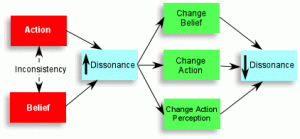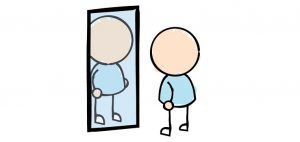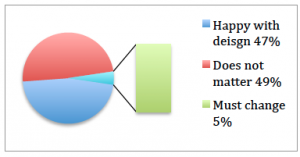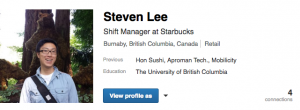Unit 1 Reflection Blog
October 3, 2016
The last assignment of Unit one allowed me to reflect on what I have written, with my peers reviewing it. I have learned that my technical writing style requires more attention towards the audience, whom has never studied psychology. My attempt to introduce “cognitive dissonance” used technical jargons that are unfamiliar to a broad audience. I chose to utilize more examples and explanation methods to explain the concept. Through my peer review feedback I have received, I have edited my definition paper with more expanded examples and less technical jargon.
Original Draft
When I was writing the original draft, I went through the process of addressing a broad audience. I have chosen to write in a manner that initially dulled down the grammar so that everyone can understand. However, this made the document extremely dull and it had undermined the reader. Thus, I have decided to utilize some technical terms to explain the concept while adding various types of examples of the concept so the audience may understand through more than one example, without allowing the text to be dulled down.

My attempt to use visuals for Cognitive Dissonance.
Peer Review Process
I have had the opportunity to take a look at Alyssia Law’s peer review of my definition paper. While reviewing, I realized the use of technical terms hinders the readers from fully understanding the concept or definitions. My use of psychology terms is not understood by anybody unfamiliar with psychology. Expecting the audience to understand my use of visual representation without proper explanation was my mistake. Also, I learned that expanded examples were great for understanding hard concepts as it frames it into context others can understand. I have learned that I should strengthen my examples, as it would allow my readers to frame the concept in a practical manner.
When I was given the opportunity to send feedback on my peer’s work, I learned many things that never occurred to me. Technical jargon is hard to bypass when explaining a technical term. Perhaps it is because we are university students and we are so entrenched in our focus of study, we are unable to see technical terms that others cannot understand. As stated in the textbook, I worded my review very carefully and the results were very pleasing. I learned that even critical reviews can be drafted in a very polite manner and still be effective in carrying out the message.
Self-editing
While editing, I took into consideration of what Alyssia had explained to me. I have streamlined all jargon, to be more friendly towards non-technical readers, made explicit explanations on my parenthesis definition, and explained what is happening on my visual explanation. I have also expanded and described in detail of my examples, as well as added more definition inside the explanation to allow readers to understand what exactly is happening in the example.
Overall, I have learned that addressing a specific audience requires more than vocabulary that would match the audience’s level. Examples drawn from life related to the reader is helpful and examples are more useful if they are explained through easy to understand definitions themselves. I have learned that it is not enough to explain the definition; the reader has to understand and relate to it to fully utilize the item at hand.

Attachments:
Rewritten Definitions :301-1-3-edited-steven-seungyup-lee-definitions
Hyperlink of my Peer Review from Alyssia
Peer Review of Steve Lee’s Definitions Assignment





